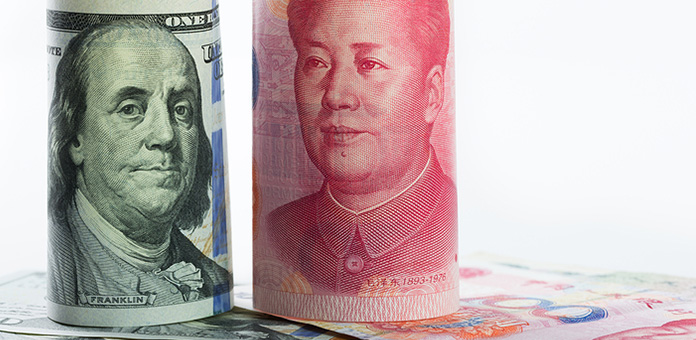
China’s rise as a world power has been well documented. Not only does China have huge trade and budgetary surpluses, but their military is now one of the largest in the world. Also, the four largest banks in the world are based in China. All of these facts used to be true of the United States. This exponential economic growth now has some financial experts wondering when, not if, China’s Yuan will surpass the U.S. Dollar as the world’s financial reserve currency.
Before the 2004 World Trade Agreement, nobody would do business in Yuan. Now 12 percent of all trade in the world is done in Yuan. As Dick Bove states in the following video, “This represents a huge shift in power away from the United States to China and ultimately [America] will lose the reserve currency.”
Mr. Bove, one of the word’s most-noted bank analysts, goes on to offer additional evidence to support his theory that the Yuan will surpass the U.S. Dollar. In 1990, for every dollar at federal reserves, China had a nickel. In 2013, for every dollar at federal reserves, China has $5.60. These numbers are why, when new deals arise, institutions like Goldman Sachs and Morgan Stanley go to China first for funding.
The People’s Bank of China now has 3.5 trillion in reserves. As Bove says, “No other entity in the world has that.” In addition, there is a global effort by China and other countries to push the dollar aside in favor of the Yuan. For example, countries like Iran, South Africa, and Russia favor the Yuan, while even the United States and Japan have recently signed a deal to do business in Yuan. Contrarily, Bove feels the “U.S. government is doing all it can to restrain the growth of the American financial system and the depth of its markets.”


